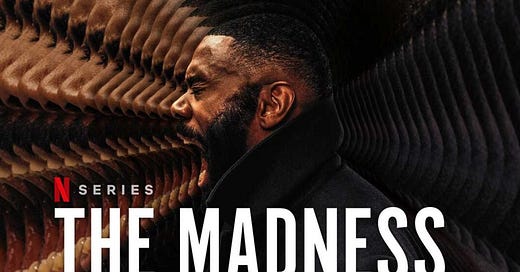Better Mid Than Meh.
Thoughts about good, entertaining shows and those that fall short of that level. Not everything has to be great.
In the days before the New Year arrived, in the cozy confines of a house fending off the dark and (semi) cold December days, I was devouring television episodes.
Lots of crossing off lists, lots of prep for posts here and even some freelance work. Oh, and also watching for joy, just to watch. The episodes were going down like Moravian sugar cake.
But not…
Keep reading with a 7-day free trial
Subscribe to Tim Goodman / Bastard Machine to keep reading this post and get 7 days of free access to the full post archives.




